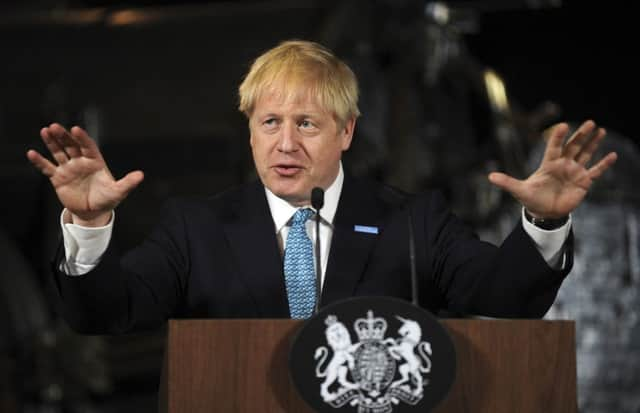Rashmi Dubé: Why we need to get tough to end this late payment culture


Read more:
Advertisement
Hide AdAdvertisement
Hide AdThe questions that most people ask in business (whether they openly admit it or not) are: (1) what changes will the new sheriff make and (2) how will they impact “me”?
The new prime minster has a number of issues to consider ranging from Brexit to climate change, and, like any other leader in his position, has a small window of opportunity to make an impact. So, with all eyes on the government and their next moves, the thing many small medium enterprises (SMEs) would like to see on the agenda with some real action (other than maybe Brexit) is cash-flow.
SMEs will be happy to hear that the topic of late payments has indeed made it on to the new leader’s agenda, but what does it mean for businesses and what is it that businesses actually want to see happen?
The issue of late payments is not a new topic. In fact I discussed it in one of my Yorkshire Post columns in January highlighting why late payments need to be addressed. It can essentially be crippling for any SME and in turn has a knock-on effect – which means potentially each domino can fall down until you come to that one business which can just about survive a late payment or non-payment.
Advertisement
Hide AdAdvertisement
Hide AdI would be surprised if late payment was not an issue on some level for all SME businesses. What is the proposal from the new leadership then? First, let’s rewind to January this year when the small business commissioner Paul Uppal was quoted saying: “The government has a range of measures in place to tackle late payment and this consultation is a further step in the right direction to protect and support small businesses.” (https://www.gov.uk/government/news/).
The very idea was to bring the Prompt Payment Code (PPC) under the Small Business Commissioner (SBC) . The remit for the SBC is to “… ensure fair payment practices for Britain’s 5.7 million small businesses, and support them in resolving their payment disputes with larger businesses.” (www.gov.uk).
So what was the original proposal? Back in 2017, the larger companies were requested to report their payment practices twice a year – complaints have been made and in January this year, the SBC confirmed that companies were not reporting.
It is clear to any SME that larger corporates are not reporting simply because it is not in their interest to do so. Why would they choose to name and shame themselves? The idea to assist the SME from the government actually goes back as far as the 1980s and by 2008, we saw the introduction of the Prompt Payment Code (PPC) created by the UK government in response to a cry from SMEs for a change in payment culture.
Advertisement
Hide AdAdvertisement
Hide Ad“It established a set of principles for businesses when dealing with and paying their suppliers that commit them to paying on time and fairly” (www.promtpaymentcodes.org). With payment terms at 60 days, this has failed – just look at Carillion as a case study. The PPC has been in place now for over a decade with no policing and no consequences.
The system is broken; it lacks teeth and therefore has no much needed bite. With no real consequences or fines that are significant enough for the larger companies to feel, it is unclear what proposals can be suggested to help alleviate this culture which is now embedded.
Fast forward to the present date and the SME (myself included) may have had a glimmer of hope to see it being reported in the Sunday newspapers (The Sunday Times) that “late payers face tougher sanctions”. According to the report, The Sunday Times sources claim that there is to be a further consultation around PPC to be launched at the end of the year.
Consultation? Again? We seem to be on this merry-go-round and can’t get off. The SME market is tired of consultations and who is being consulted? Do the SMEs have a voice to make it clear from the SMEs’ perspective, late payers do NOT face tougher sanctions! You simply have to google late payments and PPC to find a page full of newspaper articles claiming “tougher sanctions” but nothing has ever been done.
Advertisement
Hide AdAdvertisement
Hide AdI agree the current position is broken and it needs to be reviewed which does involve a healthy discussion and debate from all sectors (government and SMEs) – but when all is consulted and done, the SME wants and needs to see real change and a solution that has the teeth to bite the late payment culture.